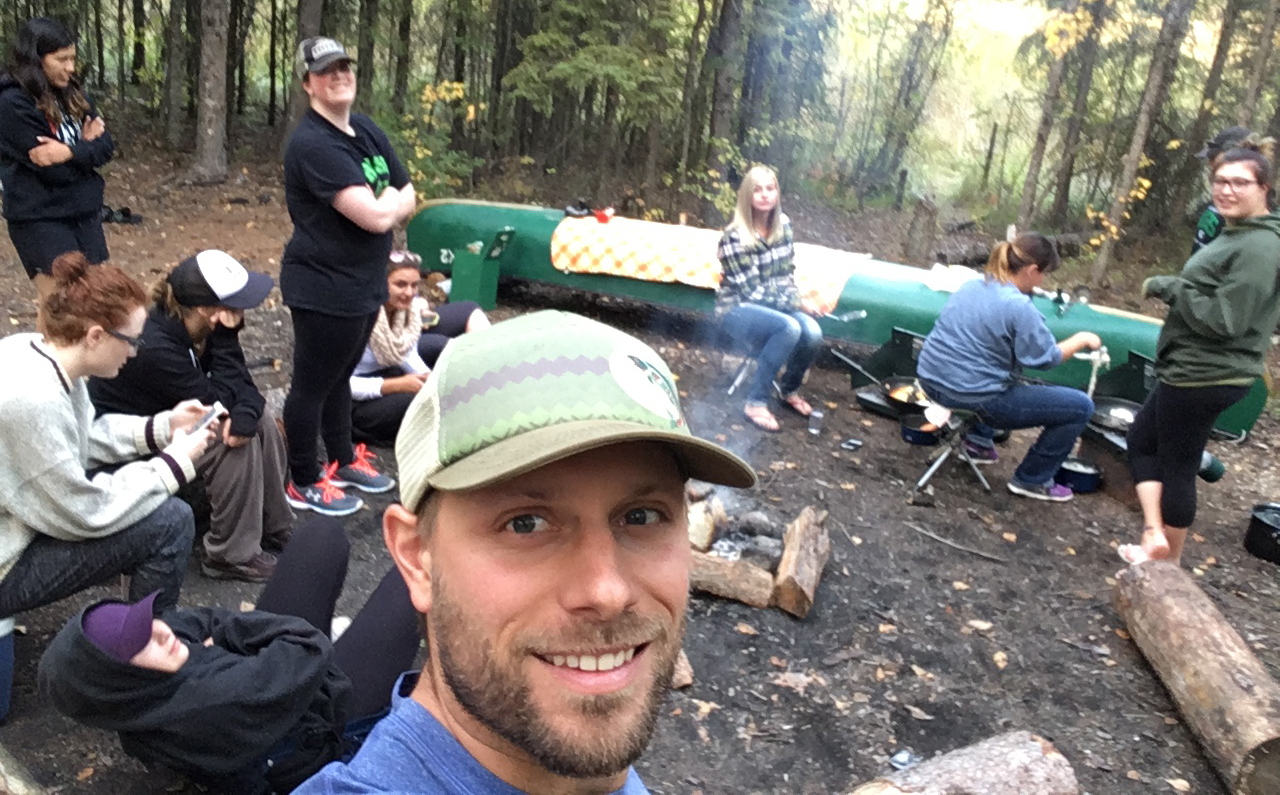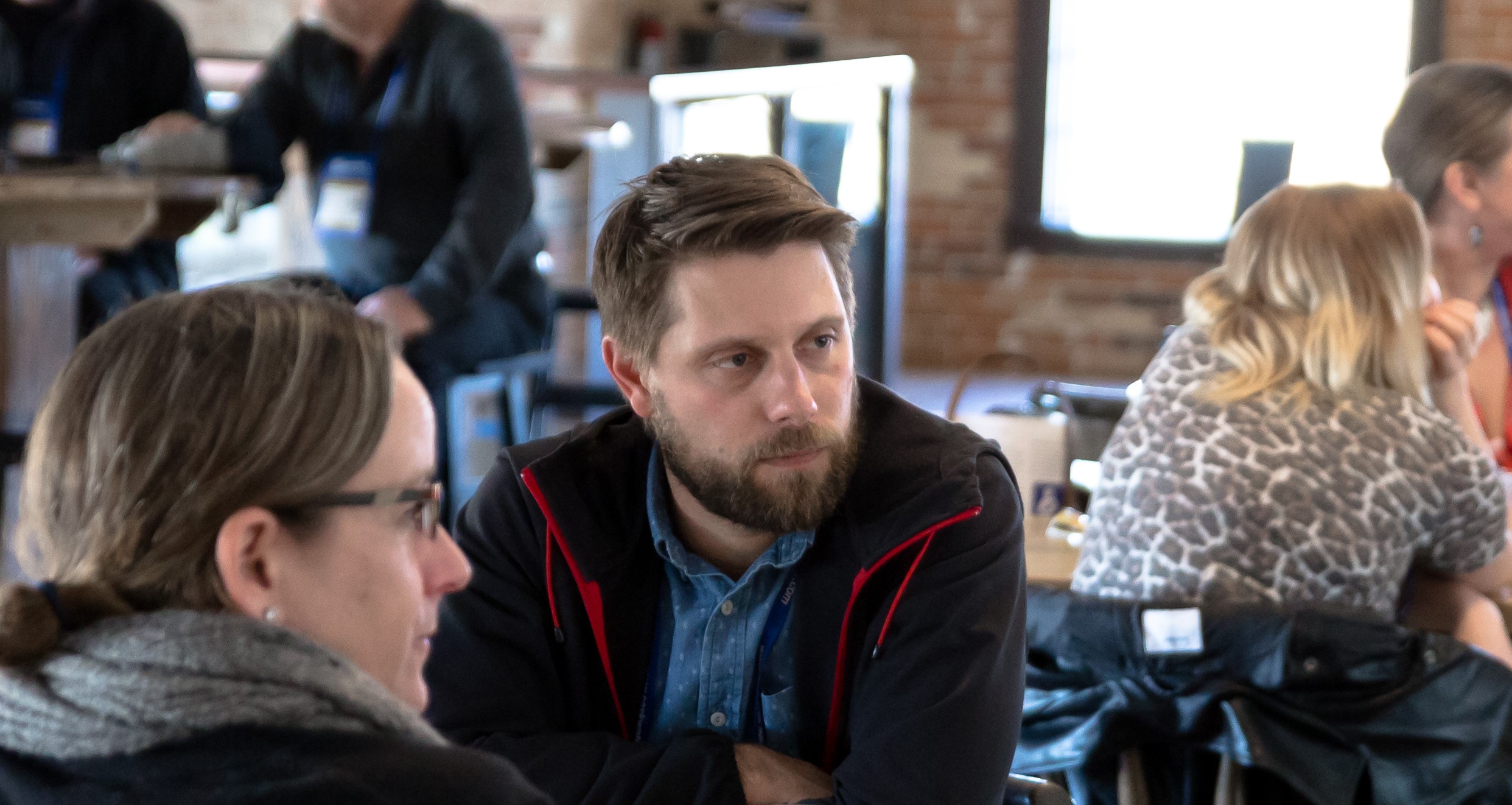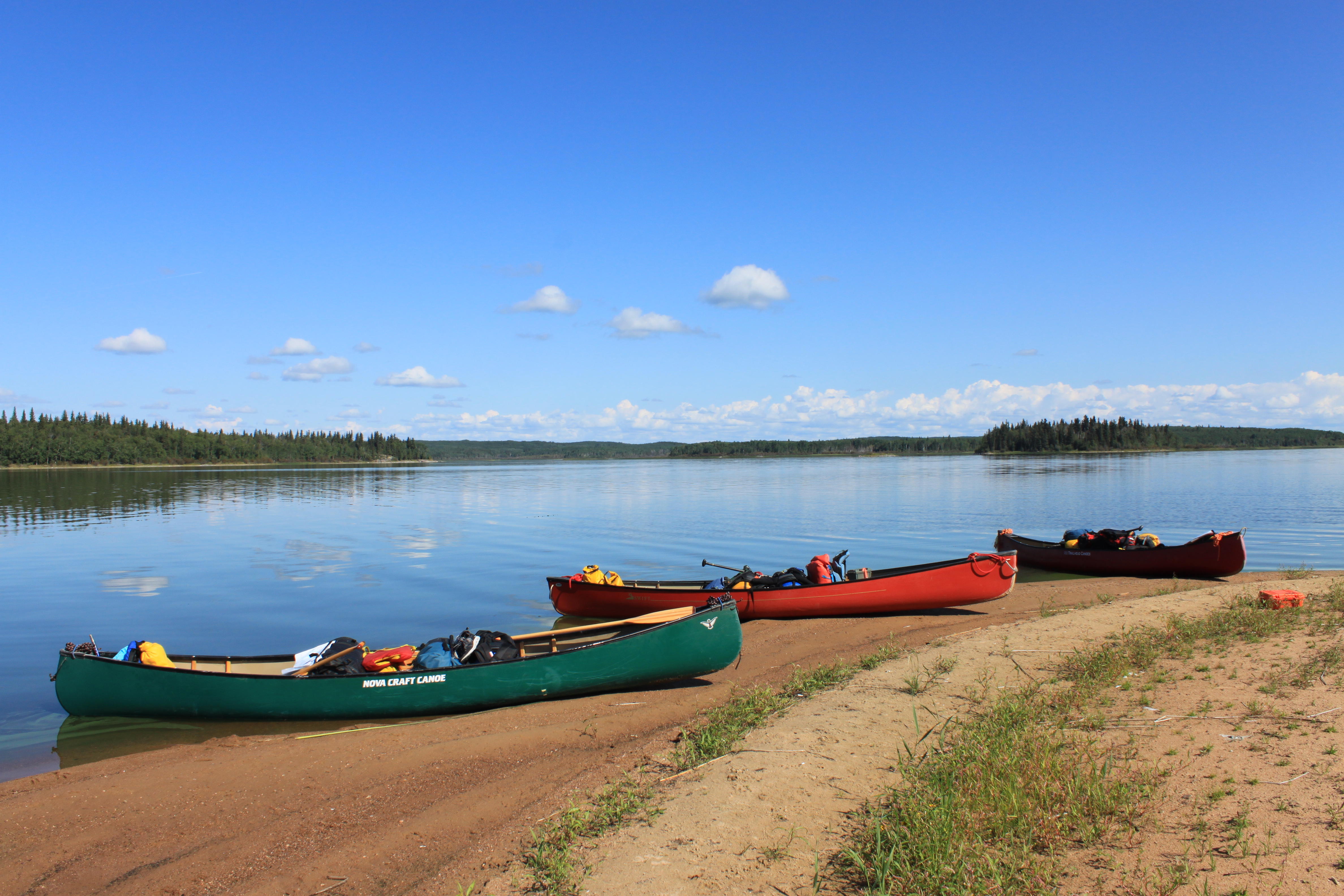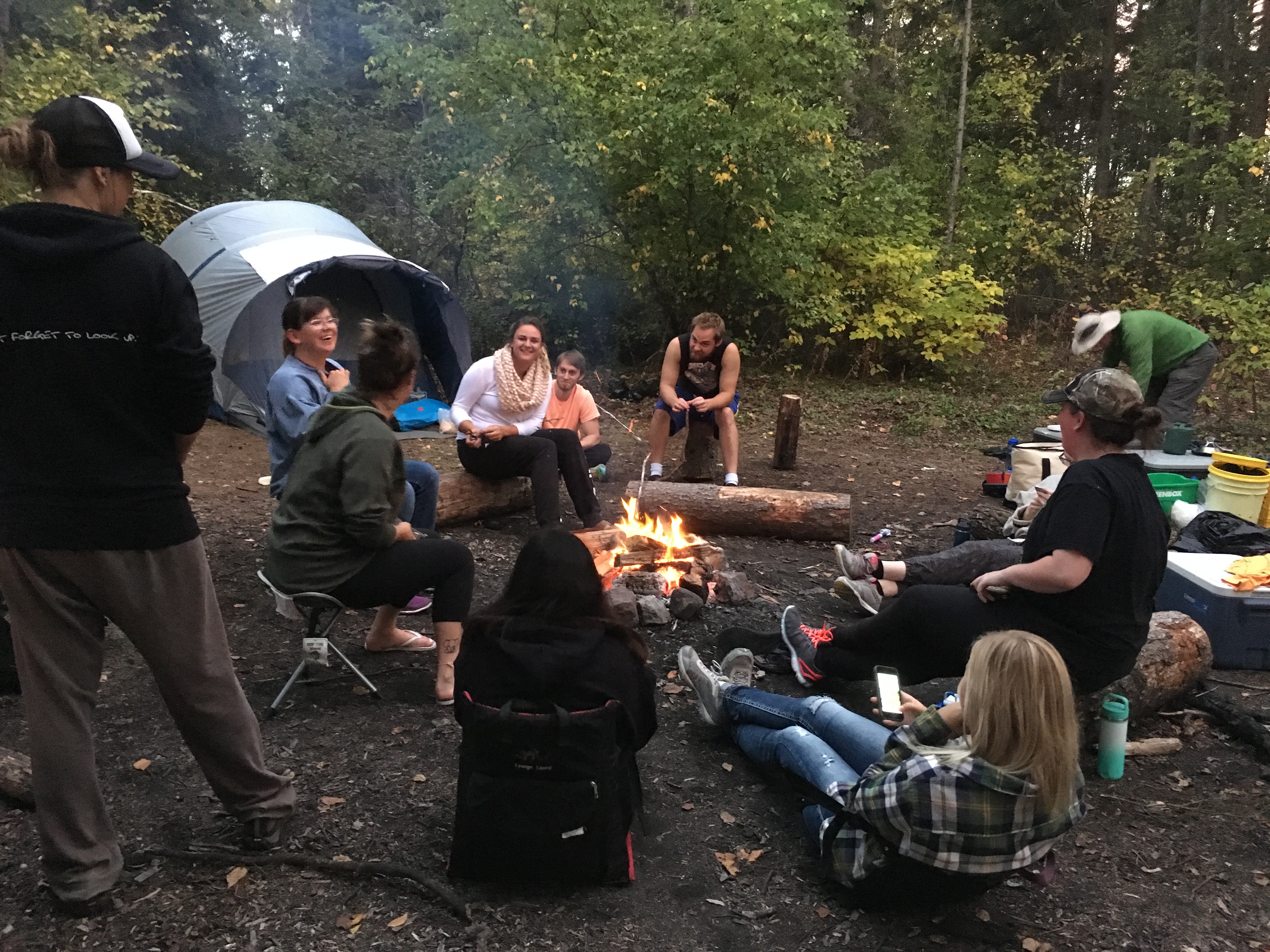
By Karen House and Christian Bates-Hardy
Photos provided by Josh Davidson
Josh Davidson is the Program Head of the newly revamped Recreation & Tourism Management (RTM) diploma program at Saskatchewan Polytechnic in Saskatoon. Under his leadership, this updated program will prepare future students for dynamic and fulfilling careers in recreation, tourism, facility management, and more. We wanted to speak to Josh before the first semester of this re-imagined program begins, and learn more about what prospective students can expect.
Before we get into the questions about the program, we’d like to learn a little bit more about you. What are your favorite recreation activities and tourism destinations in Saskatchewan?
My favorite recreation activities include biking, hiking, paddling, fishing, hunting, hockey, and slo-pitch with my family and friends.
My favorite tourism destinations include Prince Albert National Park, Candle Lake, and Narrow Hills Provincial Park.
Sounds great! Let’s talk about your program now. When does it start, and how long does the program run for?
This two-year program begins September 1st, ending with the final practicum in May of the second year. The program entails 31 classes, 3 labs and the final practicum placement.
Why is the program changing from Recreation and Community Development to Recreation and Tourism Management?
First off, I want to stress the fact that just because we are losing community development from the title of our program doesn’t mean we still aren’t training for community development. In fact, during our revision we strengthened our community development outcomes. And when tourism is done right, it is community development.
Why tourism? The tourism industry is one of the largest employers in the world, yet as a nation we are not realizing our tourism potential due to a lack of industry-specific trained staff. We currently host the only tourism-specific post-secondary training opportunity in Saskatchewan. The Recreation and Tourism industries are so interconnected, that many of our past graduates have been hired into tourism positions.

How do these changes reflect or connect with the job responsibilities of recreation and tourism professionals?
We are an industry-driven program that has been developed based on the skills and abilities desired in the field. Over twenty industry professionals were consulted during the development of the revised curriculum, including the Saskatchewan Parks and Recreation Association, the Saskatchewan Association of Recreation Professionals, the Indigenous Tourism Association of Canada, Tourism Saskatchewan, Tourism Saskatoon, and Tourism Regina.
What can students expect from the program as a result of these changes?
Increased applied learning opportunities, strong ties to both the recreation and tourism industries, continued articulation agreements with multiple universities, and most importantly, increased employment opportunities.
Q: How does the program prepare students for employment in the recreation and tourism industry?
The program is a healthy mix of theoretical and applied learning throughout the courses, and a final practicum placement in an industry area of the student’s choice. We regularly have guest speakers, facility tours, and community involvement that support industry understanding and great networking opportunities.
What skills can students expect to develop?
Some of the key skills students can develop include leadership, management, time management, professional communication, budgeting, program planning and facilitation, inclusivity, networking, and business planning.

You mentioned earlier that the program includes theoretical and applied learning. In what ways do you provide applied learning experiences to students?
Over the two years students will take part in industry orientation labs, two week-long camp programs, volunteerism, a mentorship, planning and facilitation of programming for community audiences and a 150-hour practicum of their choosing.
This year we are excited to announce a partnership with Wanuskewin Heritage Park, where we will be facilitating our classes once a week. This partnership will allow our students to support Wanuskewin Heritage Park’s offerings, while having the opportunity to receive education at a future UNESCO World Heritage Site celebrating the Plains Cree Culture.
Further applied learning opportunities include partnerships with the Saskatoon Public School Division for program development and delivery, local community association involvement and fundraising activities.
Here in Saskatchewan, the parks and recreation industry has been striving to create more inclusive employment opportunities. How does the program strive to be inclusive and accessible to students?
This is an important question, and I am proud to say that Recreation and Tourism Management continues to be a program that supports and promotes inclusion and accessibility. In the first year, students are enrolled in two classes which focus on inclusion and accessibility, being ‘Inclusive Leisure’ and ‘Diversity and Cultural Foundations’. Many of our remaining classes have outcomes that build from these foundational teachings to support inclusion and accessibility.
The COVID-19 pandemic has challenged our industry and pushed many recreation professionals to think outside the box to continue offering programs and services in their communities. What skills does a recreation professional need to be successful in our industry in a post-pandemic world?
The first one that comes to mind is resiliency in leadership. The last 18 months have been nothing short of a marathon and resilient leaders have found ways to adapt and continue to be impactful. Digital literacy has been, and will continue to be an imperative skill in providing sustainable and relevant recreation services in a post-pandemic world.

This is maybe a little off-topic, but what has been your proudest moment as Program Head?
Watching the students walk across the stage at convocation, shaking their hands and seeing their smiles all while knowing they are closer to their goal of becoming a recreation or tourism professional.
For students who are interested in becoming one of those future professionals, when is the deadline to apply?
The program is first qualified, first admitted. The sooner you apply with all of the necessary documentation (application, transcripts, supporting documentation), the sooner you can qualify for admission to the program.
Thank you, Josh. Before we end this interview, we wanted to ask you – how do you continue to grow and develop as a leader?
Good question, but before I get to that want to acknowledge my team, Stephanie Cross and Amy Peters, who have been incredible to work with and really have given so much of themselves to the program. Steph and Amy have been nothing but excellent leaders in their own rights, I am very lucky to have them be so committed to our program. As the Program Head for the Recreation and Tourism Management, I look to continually improve my leadership capacity by listening those around me, staying involved in the industry and taking the time to engage in leadership professional development activities.
Where can students who are interested in the program find out more information?
Check out our website at Recreation and Tourism Management - Diploma (saskpolytech.ca)
This post was updated on August 25, 2021.



